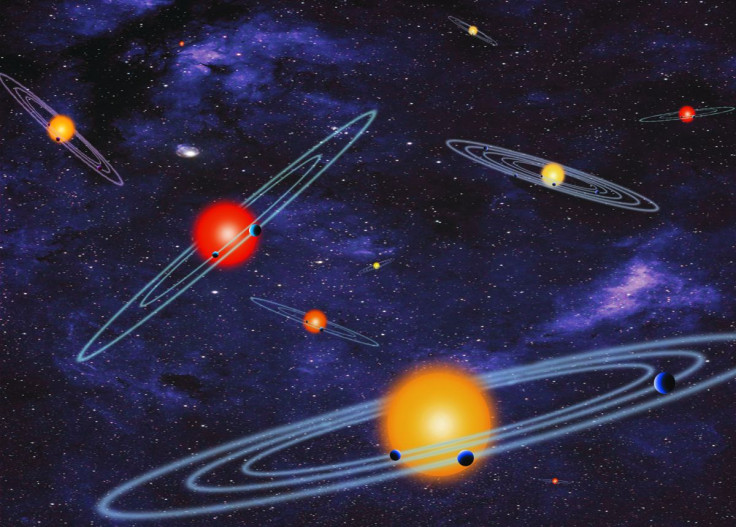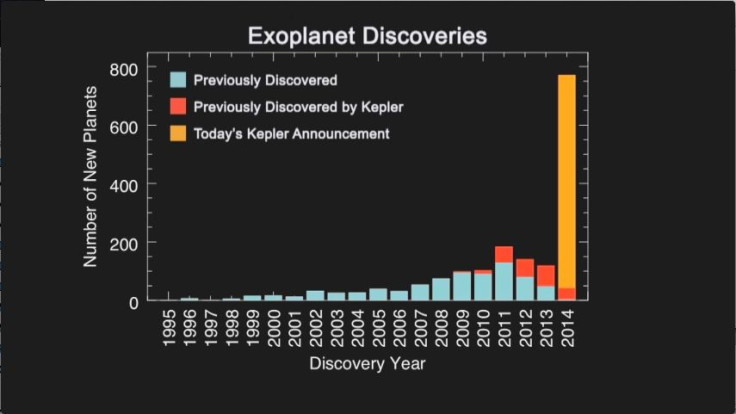715 New Planets Discovered By NASA Kepler Mission, A ‘Veritable Bonanza Of New Worlds’ [VIDEO]

NASA Kepler mission team members announced the discovery of 715 new planets. While the space observatory ceased its original data collection mission in May 2013 it has led to the discovery of 961 new planets.

NASA announced the discovery during a press conference on Feb. 26. The 715 new planets orbit 305 stars and the vast majority, 95 percent, of these planets are smaller than Neptune. Scientists had to verify these planets from thousand but simplified the process by using the “verification by multiplicity” technique.
Of the new planets, four are Earth-like planets, less than 2.5 times the size of our planet, and are within the habitable zone, the orbit area around a star where liquid water is possible, of their sun.
Researchers hope to learn more about Kepler-296f as the newly-discovered planet is just twice the size of Earth and is in the habitable zone of its sun. The planet could be gaseous or covered by a deep ocean, notes NASA.
The process is based on probability and focuses on host stars that have multiple planet candidates. It is more likely that the other objects will be a planet, and not a star, as stars tend to be found individually and through that process the researchers verified 715 planets that orbit 305 stars. NASA compared the process to the behavior of lions.
According to the announcement, “If you see two lions it could be a lion and a lioness or it could be two lions. But if more than two large felines are gathered, then it is very likely to be a lion and his pride. Thus, through multiplicity the lioness can be reliably identified in much the same way multiple planet candidates can be found around the same star.”
Co-leader Jason Rowe, a research scientist from the SETI Institute, said in a statement, “The more we explore the more we find familiar traces of ourselves amongst the stars that remind us of home.”
Kepler was crippled after two of its four reaction wheels malfunctioned but the mission’s data has been used to discover hundreds of new planets. In November, researchers announced there were 40 billion potentially habitable planets based on an analysis of the Kepler data, reports the New York Times. As part of the analysis, NASA announced the discovery of 833 candidate planets. The space agency hopes to revive Kepler as part of the K2 mission.
To date scientists have discovered 1,700 exoplanets, planets outside of our solar system. A video discussing the Kepler planet discovery, courtesy of NASA, can be viewed below.
© Copyright IBTimes 2025. All rights reserved.






















